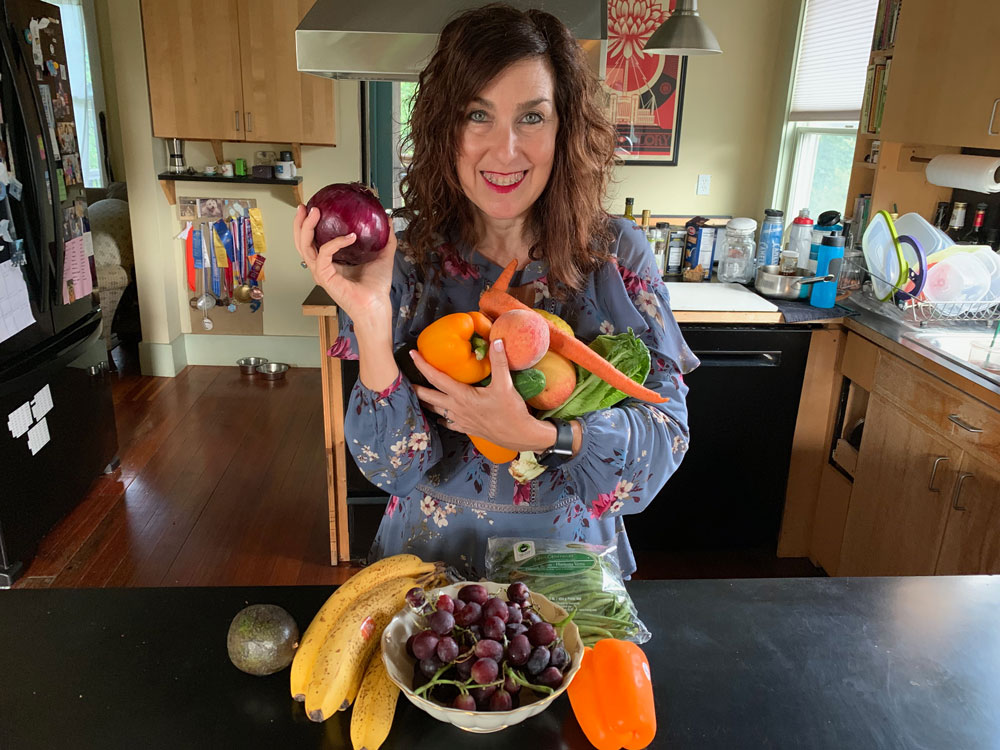Multitasking can be a great thing. You can cut weekly coupons out of the paper while catching up on the daily news or, perhaps prep lunches for the week while you are cooking dinner. However, there is no place for multitasking while you are eating. Being mindful while you eat is an important practice for a healthy lifestyle. It means bringing awareness to your eating. Engaging with other activities while you eat does the exact opposite of what you are trying to accomplish. You may think you are saving time but in reality, you are removing your enjoyment from eating and not saving anything at all.
It’s Not About the Fork
When you think of eating healthy, does your mind automatically think of foods labeled low fat, low carb, keto, paleo, or any of the other latest fad words? Many people relate healthy eating to foods that fall into these categories. Did you ever think that maybe there is a better approach to eating healthy where you don’t ever have to worry about the foods you eat? The truth is that there is a psychology to eating and it’s not about what you eat, but how you eat it. Eating is a psychological activity, not a physical one. In other words, it is not about the type or amount of food you place on the fork, but what is in your mind and how your thoughts lead you to different choices.
New Year, New Approach to Thinking About Your health
Welcome to 2020! As we usher in another year, we are reminded that the month of January tends to bring with it the age-old idea of making resolutions for the new year. The good news is that resolutions don’t work. That’s right, it’s GOOD NEWS – so you don’t need to stress out about making one and sticking to it! A resolution is simply an unrealistic goal you set for yourself. These types of goals are not achievable as they tend to be too broad of a goal. What you can do as you ring in the new year, is to come up with a new approach with a new way of thinking so you can face the new year by breaking your old thinking patterns.
A Healthy Holiday is a Happy Holiday
Tis’ the season for overeating! Celebrations filled with fun, friends and joy also tend to bring an overabundance of food. Whether at the neighbors, the office or a holiday party, everywhere we look it is food. As challenging as it is to not overindulge and lose control, there is reason to hope this season. Staying in control is not hard if you have the tools that can help make it happen. In my holiday toolbox, I always keep some basic goals and rules.
Don’t Fall for Bad Eating Habits This Season
We all “fall” for the grandeur of fall. The foliage, the pumpkins, the cornstalks and the apples. Then, there is the pumpkin pie, the apple pie and the cider donuts with a Thanksgiving feast right around the corner. While you can still fall for the beauty of the season and all it has to offer, you don’t have to fall for your sabotaging thoughts! If you can begin to look at how your thoughts are negatively impacting your weight loss and overall wellness and health goals this season, you can get ahead of the game this time of the year and learn how to eat responsibly by altering your decision making.
Why Do Diets Fail?
Diets don’t work! You’ve heard this for a while now. However, weight loss companies and diet pushers have changed their tactic a little and have found a way for you to buy into a new type of weight loss strategy. I’m sure all kinds of shiny new diets are popping up right now on your FaceBook or Instagram feed. “Go Low Carb,” “Choose Paleo for weight loss,” “Lose weight with Keto.” The fact of the matter is none of these strategies actually work.
Before we talk about why diets don’t work, we must define what “work” means. For most people a diet that “works” is a diet that you will lose enough weight to reach your “goal weight” (what a is a goal weight is a topic for another time) and stay there for the rest of your life. Oh, and for most people, this diet should be easy to adhere to. Sound about right? Although most diets can help you lose weight, it is almost never enough weight and that weight loss is not sustainable (in fact, one often gains back more weight than they lost). This is true no matter which diet you try. There is absolutely no evidence that a particular kind of diet is more effective than any other. Low carb is no more effective than low fat, etc.





